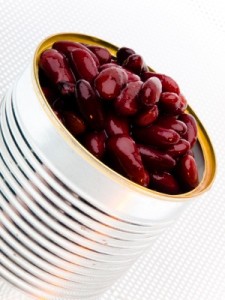The Food and Drug Admisnistraion is denying The Natural Resources Defense Council’s (NRDC) request to ban BPA from the United States.
The Food and Drug Administration’s assessment is that the scientific evidence currently suggests that the very low levels of human exposure to BPA through the diet are not unsafe.
With the support of the National Institute of Environmental Health Sciences (NIEHS) and the National Toxicology Program (NTP), scientists at FDA’s National Center for Toxicological Research (NCTR) have been studying BPA. The NCTR researchers have been conducting in-depth studies of BPA since September 2024 to see if there are potential toxic effects of BPA on fetuses, infants and children.
According to a statement released from the FDA, the findings showed the level of BPA from food that could be passed from pregnant mothers to the fetus is so low that it was immeasurable. Researchers fed pregnant rodents 100 to 1,000 times more BPA than people are exposed to through food, and could not detect the active form of BPA in the fetus eight hours after the mother’s exposure. The study also showed BPA exposure to infants were lower than previously believed. In fact, 84 to 92 percent lower than previously estimated.
NCTR researchers were able to recreate what happens to BPA once it enters the body by using mathematical models. The models showed that BPA is rapidly metabolized and eliminated through feces and urine. They observed that BPA is “exactly the opposite” from other toxins, like dioxin. Research has shown that dioxic can stay in the body’s tissues for months or even years.
The NRDC responded by saying it believes the FDA “made the wrong call” on not prohibiting the use of bisphenol A.
“BPA is a toxic chemical that has no place in our food supply,” said a statement from Dr. Sarah Janssen, a senior scientist in the council’s public health program. “The agency has failed to protect our health and safety in the face of scientific studies that continue to raise disturbing questions about the long-term effects of BPA exposures, especially in fetuses, babies and young children,” the statement said. “The FDA is out of step with scientific and medical research. This illustrates the need for a major overhaul of how the government protects us against dangerous chemicals.”
The FDA’s recent response denying the ban comes from a court issued consent that required them to make a decision by the end of March after being sued by The NRDC in 2024.
Past research has shown that people are exposed to BPA because small amounts can migrate into the food and beverages from their containers. Reports from some animal studies have raised potential concerns that BPA exposure may cause multiple health problems, including reproductive disorders, diabetes and cardiovascular disease.
If you are concerned, here are a few ways to limit exposure to BPA:
- Some plastics that are marked with recycle codes 3 or 7 may be made with BPA, look at the bottom to find the code.
- Avoid putting extremely hot or boiling liquid in plastic containers. Heat can cause the release of BPA.
- Discard all bottles with scratches, as these may harbor bacteria and, if containing BPA, lead to greater release of BPA.
FDA is continuing its research and monitoring of studies to address uncertainties raised about BPA.
